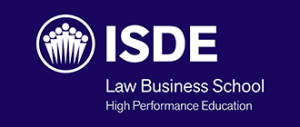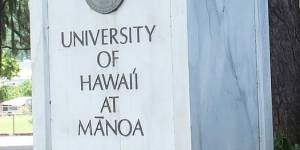I have an urgent question that needs answer. Is there a checking process, or -in anyway- possibility of verification, about the validity of transcripts and truth of things stated in the application (work experience,current employer,validity of reference letters,referees' existence,publications existence etc), of an oversea's candidate, afterwards or before the admission of the applicant, either if the facts stated arise from applicant's transcripts and proving material or if they are stated by the candidate in cv/personal statement? Moreover, is it possible for a third party, except the candidate, to gain access to the application's material, even years after the graduation? I am talking about PhD admission in LSE and Oxbridge...
Application Statements Check
Posted Feb 15, 2009 20:07
Posted Feb 18, 2009 15:02
please respond!
Posted Feb 18, 2009 23:53
Essentially, what I believe you are asking is whether, if you lie on an application form, you can be caught? I struggle to see why this is a matter of such urgency, or why indeed a serious Oxbridge/LSE PhD applicant would not be able to work out the answer for themself. The answer is yes, they will check your application thoroughly, particularly if you wish to benefit from scholarships and the like. If not, then why don't we all just go out and make up rubbish about ourselves. Ultimately, though, I believe it boils down to this: if you feel you need to lie on your application for whatever reason, you are aiming too high.
Posted Feb 20, 2009 14:53
Yes, they will check. They have received thousands of applications over the years from every country in the world, and they can smell a rat a mile away.
What sort of lawyer or would-be lawyer contemplates lying on an admissions form?
Perhaps Business School is where you belong...
What sort of lawyer or would-be lawyer contemplates lying on an admissions form?
Perhaps Business School is where you belong...
Posted Feb 20, 2009 18:44
sorry friends, but i have graduated years ago from outside of GB university and i am working now my phd dissertation in salonika's university ... the fact is that i want to know how anyone can gain access to one GRADUATE's application file, 4years after graduation talking... with an oxford phd you can easily take a lecturer's position in many universities, and if you have been admitted after using fake statements it is a bit unfair for others competing for the same position. i know that anybody can report possible violation of admission rules even after graduation, however he cannnot be sure in advance about the violation, so if the former applicant was clear and he did nothing wrong, then the reporter may have serious problem. so the best is to check before accusing. and there emerge my two questions: Firstly, if EVERYTHING is checked in advance by the admission board, such accusation after graduation cannot be anything else than false. And this is a fitting answer for any cheater who bases his skills on a true and strong phd in which however he was admitted years ago using lies... "I was accepted so i cannot have told lies". However, i cannot understand how a university from england can check EVERYTHING reported in an application, such as work experience and former publications (what can they do? communicate with every former employer reported in application? come on anybody can state that he has worked for a foreighn corporation in past, as let's say counsel or external collaborate and nothing can be checked because no former client of an attorney at law is going to respond to possible communication from a university asking for one former collaborate of him... and no university can check one by one every known and unknown law review to find an applicants' articles, stated in aCV, while it has to deal with hundred applications and thousands of true or false statements submitted)
Secondly... The problem for the "graduate" arouses when another person who knows very clearly his past achievements asks access to his file. So how the third party can break the disclosure rule? what is the procedure?
and rolli think that: if the admission board think that an application is a bit strange, because let's say the many achievements of the applicant in ayoung age, what can it do? reject him because he looks overtalented? ask him to present certificates from every former client of him? (i am not talking about false transcripts because i understand that they can be verified) and take into consideration that these schools search the same thing that the applicant presents: a young overtalented person with achievements above the normal!
Secondly... The problem for the "graduate" arouses when another person who knows very clearly his past achievements asks access to his file. So how the third party can break the disclosure rule? what is the procedure?
and rolli think that: if the admission board think that an application is a bit strange, because let's say the many achievements of the applicant in ayoung age, what can it do? reject him because he looks overtalented? ask him to present certificates from every former client of him? (i am not talking about false transcripts because i understand that they can be verified) and take into consideration that these schools search the same thing that the applicant presents: a young overtalented person with achievements above the normal!
Posted Feb 21, 2009 11:35
You make some good points.
And then, when you become a lawyer, why not just make up fictional affidavits all the time - if they're fictional, how can anyone ever check them? And then, why not lie to the Court - how will they ever know?
Seriously, man....
And then, when you become a lawyer, why not just make up fictional affidavits all the time - if they're fictional, how can anyone ever check them? And then, why not lie to the Court - how will they ever know?
Seriously, man....
Related Law Schools
Hot Discussions
-
Oxford 2025-2026 BCL/MSCs/MJUR/MPHIL/MLF
Nov 15 04:43 AM 2,057 44 -
NUS LLM 2024-25 Cohort
Oct 25, 2024 5,858 34 -
Harvard LLM 2025-2026
Nov 20 09:34 PM 1,691 7 -
NUS LLM cohort 2025/26
Nov 17 05:40 PM 472 5 -
Scholarship Negotiation Strategy (BCL v. NYU LLM Dean's Graduate Scholarship)
Nov 09, 2024 1,041 4 -
EU citizen barred in the US -- will an LLM from an EU school help me practice law somewhere in the EU?
Nov 15, 2024 137 4 -
LLM in ADR
Oct 23, 2024 390 4 -
LLM in Germany 2024
Nov 09, 2024 823 4



